Spice Up Your Ribs: The Ultimate St. Louis Style Rib Rub Guide (With Secret Tips!)
If you're looking to transform your backyard barbecue into a flavor-packed, mouthwatering experience, then this is the article for you! Welcome to the world of St. Louis style rib rub — a legendary spice blend that turns ordinary ribs into something extraordinary.
In this deep dive, we’ll explore everything from its regional roots and core ingredients to pro tips for customizing your own version at home. Plus, we’ve got handy tricks to make sure your ribs are fall-off-the-bone delicious every single time!
Table of Contents
- What Exactly Is St. Louis Style Rib?
- Breaking Down the St. Louis Style Rib Rub
- 5 Game-Changing Tips for the Best Ribs Ever
- How to Customize Your Rub Like a Pro
- Pairing Suggestions: What Goes With St. Louis Ribs?
- Final Thoughts: Mastering the Art of the Rub
What Exactly Is St. Louis Style Rib?
Let’s start with the basics: what makes St. Louis ribs unique? Unlike their baby back cousins, St. Louis ribs come from the spare ribs cut — they’re meatier, fattier, and pack more flavor. But it’s the rub that really sets them apart on the grill.
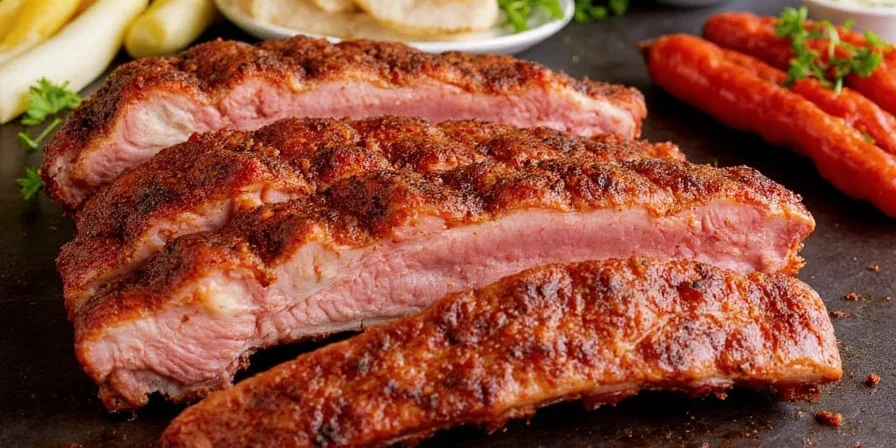
A Flavor Profile That Speaks Volumes
The St. Louis rub isn’t about overwhelming heat — it's a balanced blend of sweet, smoky, salty, and spicy notes. It’s all about enhancing the natural flavor of the pork while adding depth and complexity through spices.
| Characteristic | Description |
|---|---|
| Sweetness | Brown sugar or molasses-based sweetness |
| Heat Level | Mild to medium (can be adjusted) |
| Smokiness | Paprika, smoked paprika, or chipotle add a subtle kick |
| Saltiness | Comes from kosher salt or sea salt |
Breaking Down the St. Louis Style Rib Rub
Let’s get down to the nitty-gritty. Here’s a classic breakdown of the key components in a traditional St. Louis rib rub:
- Brown Sugar: Adds caramelized sweetness and helps form a beautiful bark on the ribs.
- Kosher Salt: Balances flavors and enhances overall taste.
- Black Pepper: Offers a mild heat and earthy background note.
- Paprika: Provides color and a slight smokiness.
- Garlic Powder: Intensifies the savory umami of the pork.
- Onion Powder: Adds a deeper layer of allium flavor without overpowering the mix.
- Cayenne (Optional): For those who like a bit of fire in their flavor profile.
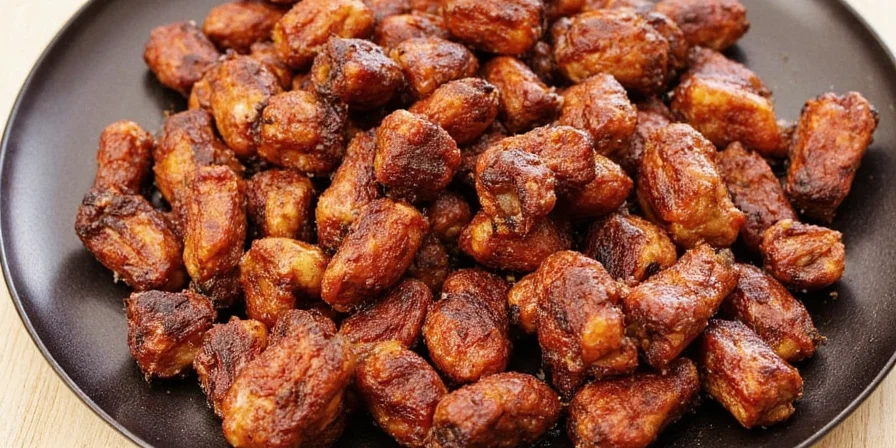
Rub vs. Marinade: Why Rub Wins for Ribs
While marinades infuse flavor into meat, they don’t always give that crusty, flavorful bark that makes ribs so craveable. A good dry rub does both — it seasons deeply and creates a texture that’s irresistible.
5 Game-Changing Tips for the Best Ribs Ever
Now that you know what goes into a great St. Louis style rib rub, here are some insider secrets from pitmasters and pros to take your grilling game to the next level:
- Apply the rub at least 4 hours before cooking — preferably overnight.
This allows the spices to penetrate the meat and meld together for maximum flavor.
- Don’t skip the wrap!
After 2–3 hours of smoking, wrap the ribs tightly in foil or butcher paper. Add a splash of apple juice or vinegar-based sauce inside for steamy tenderness.
- Use a two-zone fire setup on your grill.
This gives you indirect heat for slow cooking and direct heat for searing the bark after wrapping.
- Brush with sauce only during the last 15–20 minutes.
Adding too early will burn the sugars and ruin the flavor. Stick to a quality BBQ sauce that complements your rub.
- Rest the ribs before slicing!
Give them 10–15 minutes under foil to let the juices redistribute. Trust us — it makes a difference!
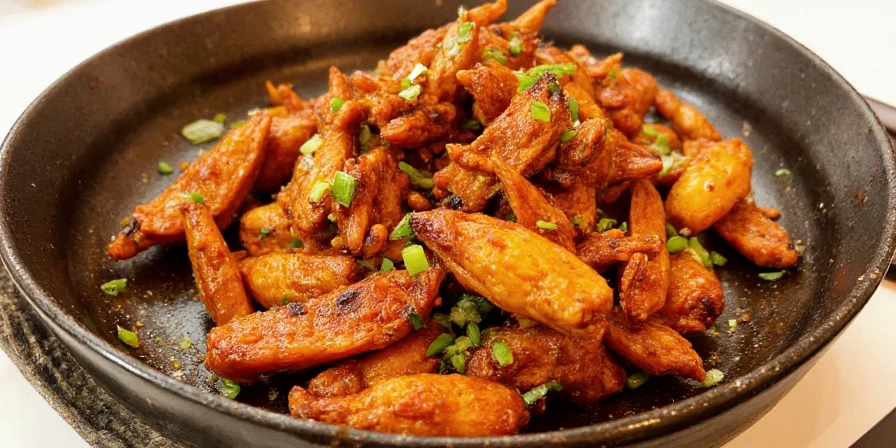
How to Customize Your Rub Like a Pro
Want to make your St. Louis style rib rub truly your own? Try these tweaks to match your personal taste or impress your guests:
- Add cocoa powder for a rich, dark depth (think chocolate mole vibes).
- Swap brown sugar with coconut sugar for a lower glycemic option.
- Throw in a pinch of cinnamon or allspice for warmth and complexity.
- Use dried citrus zest like orange or lemon for brightness.
- Replace black pepper with white pepper for a smoother, less aggressive heat.
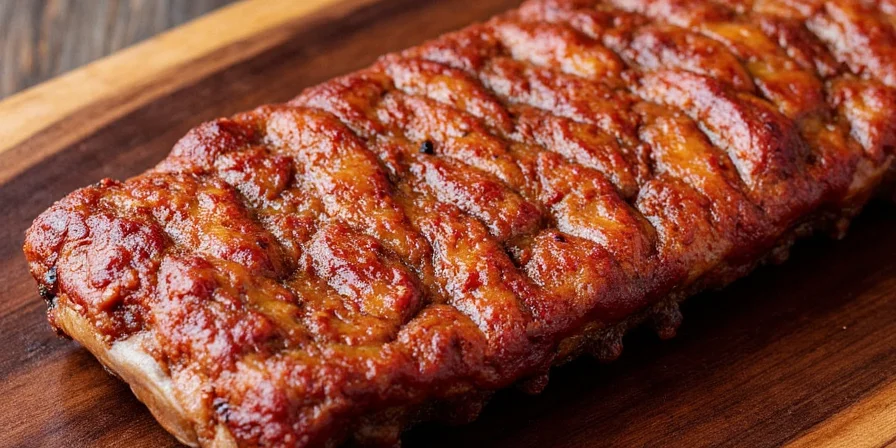
Try These Regional Twists
- Texas-style: More cumin and chili powder, less sugar.
- Kansas City-style: Double the brown sugar and add a touch of coffee grounds.
- Carolina-style: Swap paprika for mustard powder and add cracked black pepper.
Pairing Suggestions: What Goes With St. Louis Ribs?
You’ve nailed the ribs — now what to serve alongside them? Here are some top-notch pairings to complete the meal:
| Side Dish | Why It Works |
|---|---|
| Classic Coleslaw | Cools things down and adds crunch |
| BBQ Baked Beans | Matches the smoky-sweet flavor profile |
| Cornbread | Absorbs extra sauce and adds texture |
| Grilled Vegetables | Brings freshness and balance to the plate |
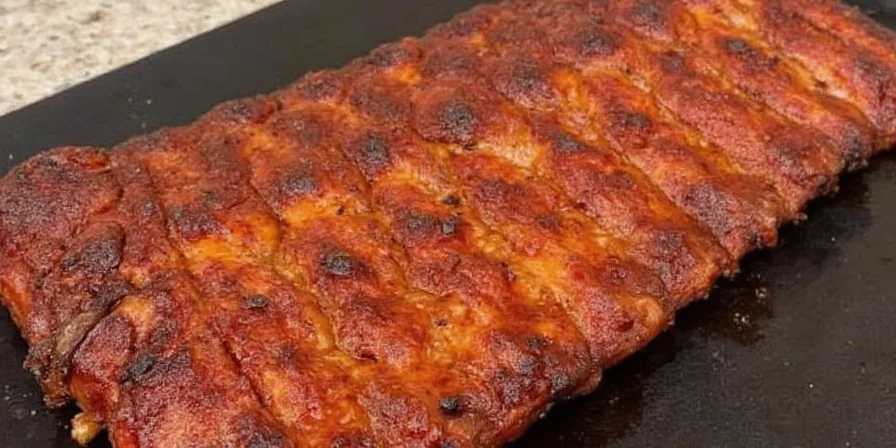
Final Thoughts: Mastering the Art of the Rub
The St. Louis style rib rub is more than just a seasoning — it’s a gateway to culinary joy, regional pride, and backyard barbecue glory. Whether you’re a seasoned pitmaster or a curious amateur, mastering this blend opens up a world of flavor possibilities.
Remember, the best rub is the one you tweak and refine over time. So grab your spices, roll up your sleeves, and start experimenting. You might just discover your new favorite flavor combo!
Happy grilling, spice lovers — may your ribs always be juicy and your rubs unforgettable! 🔥🍖

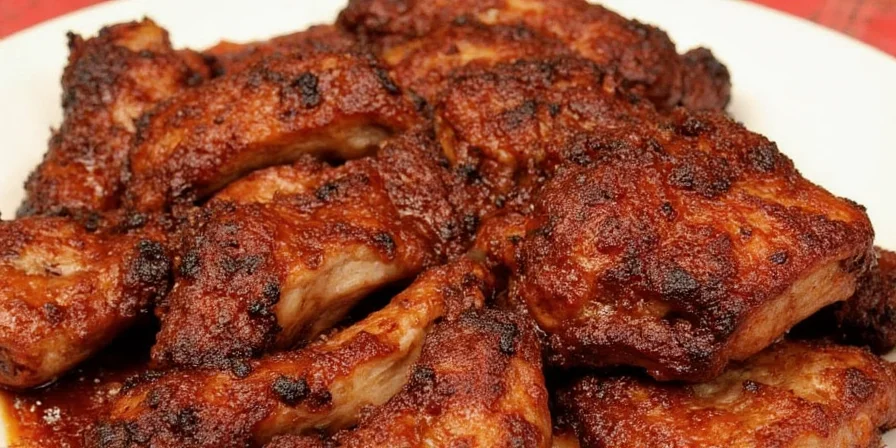









 浙公网安备
33010002000092号
浙公网安备
33010002000092号 浙B2-20120091-4
浙B2-20120091-4